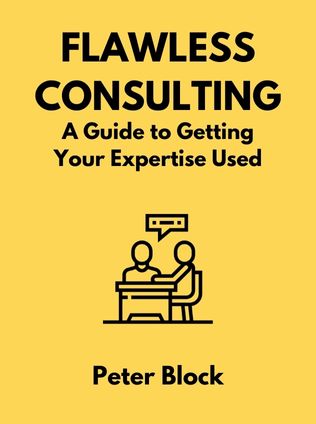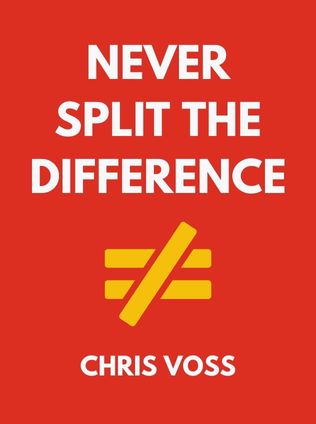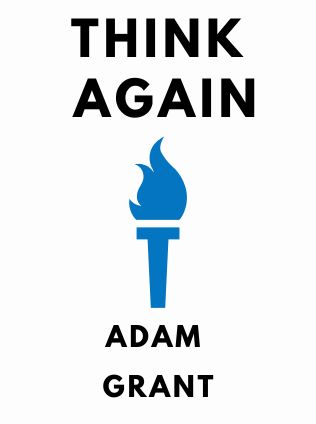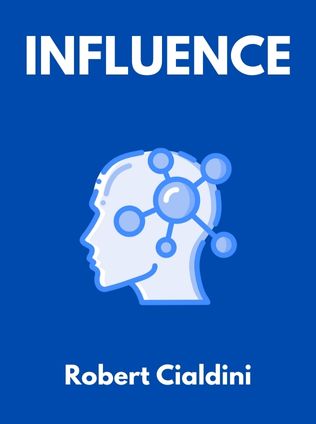
Flawless Consulting
A Guide to Getting Your Expertise Used
By Peter Block
Published 04/2011
About the Author
Peter Block, a renowned consultant and author, has significantly contributed to the field of consulting with his insightful works. He founded two prominent training firms, Designed Learning and Block Petrella Weisbord. Since the first edition of Flawless Consulting in 1981, Block has written other best-selling books, including The Empowered Manager and Stewardship. His expertise and experience have made him one of the most respected figures in the consulting world.
Main Idea
Flawless Consulting serves as a comprehensive guide for consultants, both internal and external, on how to effectively engage with clients and ensure their expertise is utilized to its fullest potential. The book emphasizes the importance of authenticity and attention to both the business and relational aspects of consulting. By mastering these elements, consultants can achieve greater leverage and impact, resulting in successful and satisfying engagements for both consultants and clients.
Table of Contents
- Introduction
- The Foundations of Flawless Consulting
- Techniques Are Not Enough
- Developing Client Commitment
- Staging the Client’s Involvement
- Flawless Consulting
- Contracting Overview
- Elements of a Contract
- The Contracting Meeting
- Understanding Resistance
- From Diagnosis to Discovery
- Managing the Feedback Meeting
- Implementation
- Strategies for Engagement
- Ethics and the Shadow Side of Consulting
- The Heart of the Matter
Analyzing and Explaining Each Idea and Sub-Content in Depth
The Foundations of Flawless Consulting
Block begins by defining what it means to be a consultant. A consultant is someone who influences others without having direct control. This definition is crucial as it sets the stage for understanding the unique position and challenges consultants face. Block asserts that consulting flawlessly requires intense concentration on being authentic and attending to the business of each stage of the consulting process.
"A consultant needs to function differently than a line manager. Much of the disfavor associated with the term consultant comes from the actions of people who call themselves consultants but act as surrogate line managers." - Peter Block
Block underscores the importance of authenticity in consulting. Being authentic means being true to oneself and expressing genuine thoughts and feelings in interactions with clients. This authenticity fosters trust, which is the bedrock of any successful consulting relationship. Trust, in turn, enhances the consultant’s leverage and impact, enabling more effective and enduring solutions.
Techniques Are Not Enough
Block emphasizes that consulting involves operating on two levels: the cognitive (substance) and the relational (affective). While the substance deals with problem-solving and technical issues, the affective side focuses on the relationship with the client. Consultants must value both aspects equally to be effective.
The four elements of the affective side of consultant-client interaction are responsibility, feelings, trust, and personal needs. Block encourages consultants to become comfortable with expressing their feelings about the relationship to improve their interactions with clients. This dual focus ensures that both the technical and human aspects of consulting are addressed, leading to more comprehensive and sustainable solutions.
Developing Client Commitment
Building client commitment is essential for a consultant’s impact. Block highlights that effective consulting skills involve creating internal commitment in managers. This commitment is often built by removing obstacles that prevent clients from acting on the consultant’s advice. Block provides several strategies for fostering this commitment, including establishing collaborative relationships, solving problems so they stay solved, and ensuring attention is given to both technical/business problems and relationships.
- Establish a Collaborative Relationship: Collaborating maximizes the use of resources from both the consultant and the client.
- Solve Problems So They Stay Solved: Ensure that clients learn how to solve similar problems in the future, increasing their competence.
- Attention to Both Technical/Business Problems and Relationships: Balance the focus on technical issues with the process of how people interact around these problems.
By focusing on these areas, consultants can build stronger, more effective relationships with their clients, leading to greater impact and job satisfaction for both parties.
Sign up for FREE and get access to 1,400+ books summaries.
You May Also Like
How To Win Friends and Influence People
The All-Time Classic Manual Of People Skills
By Dale CarnegieQuiet: The Power of Introverts
The Power of Introverts in a World That Can't Stop Talking
By Susan CainThe Lean Startup
How Today's Entrepreneurs Use Continuous Innovation to Create Radically Successful Businesses
By Eric RiesWho Moved My Cheese?
An Amazing Way to Deal with Change in Your Work and in Your Life
By Spencer Johnson, M.D.Make Your Bed
Little Things That Can Change Your Life...And Maybe the World
By William H. McRaven



















